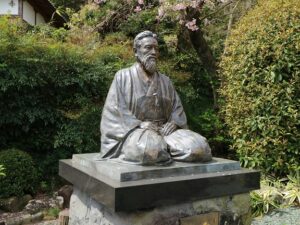民間伝承と哲学 (Folklore and Philosophy)

偉大な哲学者プラトン (紀元前 427-347) ソクラテスの弟子
Aeon という雑誌に、2024 年 2 月 26 日に掲載された論文 "Folklore is philosophy" が興味深いものであったので、ここで紹介したい。
筆者の Abigail Tulenko は、ハーバード大学哲学科の博士課程在学中の俊英である。 (2025 年には卒業していた) 彼女は哲学科の閉塞性を打ち破るには、民間伝承を活用することが、良い方法ではないかと考えている。
哲学における民間伝承の可能性
民間伝承は、現在の哲学が抱えている問題を解決する方法を提供すると、Abigail Tulenko は主張する。文中に取り上げられる Ibronka は、ハンガリー民話に登場する主人公である。
I propose that one avenue forward is to travel backward into childhood – to stories like Ibronka’s. Folklore is an overlooked repository of philosophical thinking from voices outside the traditional canon. As such, it provides a model for new approaches that are directly responsive to the problems facing academic philosophy today. If, like Ibronka, we find ourselves tied to the devil, one way to disentangle ourselves may be to spin a tale.
(訳) 前に進む一つの方法は、子供時代にーすなわちイブロンカのような物語にー帰ることであると、私は提案する。民間伝承は、伝統的な哲学の正典の外部に存在する声から生まれてくる哲学的思惟という、これまで見過ごされていた宝庫である。そのため、民間伝承は今日の保守的な哲学に直面している問題に対して、じかに反応する新しい方法の実例を提供する。イブロンカのように、私たちが悪魔に結び付けられていると気付けば、私たちを悪魔から解放する一つの方法は、物語を紡ぎ出すことであろう。
哲学の正典を増やすには、民話が適しているのはないかと、筆者は考えている。これまでは、アリストテレス、プラトン、カントなどの著作が、大学の哲学科などでは、正典とされていたが、これに民間伝承も含めようとしている。
Folklore has existed in some form in every culture and, in each, it has brought underrepresented groups to the fore. As we look to expand the canon, folklore is a rich source of thought on topics of philosophic interest with the potential to uplift a wide range of voices who have thus far been largely overlooked.
(訳) 民間伝承はあらゆる文化の中で、何らかの形式で存在してきた。そして、それぞれの文化の中で、民間伝承は、取り上げられることが少ない群れを、前面に持ち出した。私たちが哲学正典の拡大を目指すなら、民間伝承は、これまで大部分見過ごされてきた広い範囲の意見を集める可能性を持った、哲学的興味を与える話題に関しての思考の豊かな源である。
民間伝承は説明不可能な現象を理解する手段
民間伝承とは説明不可能なことを理解する試みであると、民族学者の Reet Hiiemäe (2018 年からエストニア文学博物館民俗部門民俗・宗教ワーキンググループの主任研究員) は論じているが、深く納得できる説明と、Abigail Tulenko は考えている。
The folklorist Reet Hiiemäe goes as far as to argue it is ‘human fear’ that ‘induced the emergence and formation of folkloric phenomena’. Folklore is an imaginative attempt to make sense of the inexplicable. By tuning into what frightens us, we learn who we are. And if we want to find out what frightens us, the Black Forest is the first place we should look.
(訳) 民俗学者のリート・ヒーエマエは、「民間伝承現象の発生と形成を生じさせたのは、人間の恐怖である」とさえ言っている。民間伝承は説明できない事象を理解する想像的な試みである。私たちを恐怖に追い込むものに注意を払うことによって、自分自身の本質を学ぶ。そしてもし私たちが脅かすものを見つけたいなら、黒い森こそ、最初に探すべき場所である。
民話を哲学に取り入れるには、方法論が必要であるが、それには、解釈、文学、人類学的な事実を考慮に入れる必要がある。
Then there is the question of methodology: when faced with a folktale, how would a sympathetic philosopher proceed? The tales generally aren’t going to give us arguments neatly pre-packaged in premise-conclusion form. We will need to put in the interpretive work to understand the contextual and stylistic features necessary to extract philosophic insights. There will be interpretive, literary and anthropological facts to consider.
(訳) そして方法論の問題がある。民話に直面したとき、共鳴する哲学者は、どのように進めるであろうか。一般的に、物語は、前提と結論を持つきちんと前もって包装された議論を与えない。私たちは、哲学的洞察を引き出すのに必要な文脈や文体の特徴を理解するために、解釈という仕事をする必要があろう。考慮すべきは、解釈、文学、人類学の事実となるであろう。
哲学に民間伝承を取り入れる困難
民話を扱うには、現実の煩雑さや特異性に関わることを怖れてはいけない、と Abigail Tulenko は主張する。
Folklore is openly historical, and openly in flux. Tales evolve with the contributions of successive tellers, and yet, in what persists, we are able to witness thought processes that approach timeless resonance. This method offers advantages over the European philosophical model, which can obscure the wider history of ideas in its insistence on abstracted and individual pursuit of the universal. Storytelling is unafraid to engage with the contextual, the messy and the specificity of the real in a way that the pristine structures of philosophy struggle to do.
(訳) 民間伝承は明らかに歴史的であり、明らかに流動的である。物語は、代々と続く語り手とともに進化し、生き残るものの中に、永遠の反響に近づく思考過程を目撃することができる。この方法は、ヨーロッパの哲学体系より有利である。そのヨーロッパのモデルは、宇宙についての抽象的・個人的な追及を固執して、認識の広い歴史を曖昧にしている。物語を語ることは、哲学の素朴な体制が苦心している方法で、現実の文脈、混乱、特殊性に関わることを怖れてはいない。
Abigail Tulenko は、哲学ばかりではなく写真にも興味を持っているようである。このような方が、哲学の将来を担ってほしいものである。大いに期待できる新人である。


